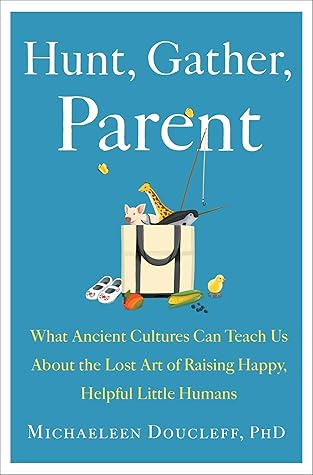More on this book
Community
Kindle Notes & Highlights
Read between
October 4 - October 15, 2023
“When we yell at children, we are training them not to listen,” she tells me. “A lot of times, parents will say, ‘But he won’t listen until I raise my voice,’ and I say, ‘Okay. Raise your voice to get him to listen and then you’ll always have to raise your voice.’ ”
Expect children to misbehave. Expect them to be rude, violent, and bossy. Expect them to make a mess, do tasks improperly, and sometimes be an overall pain in the butt. Don’t take it personally (or think you’re a bad parent). It’s just how children are made. And it’s your job, as the parent, to teach them how to behave acceptably and control their emotions.
“If a little child doesn’t listen, it’s because she is too young to understand. She is not ready for the lesson.”
there’s no reason to get angry when a small child is rude, screams in your face, or strikes out. It’s not a reflection of a parent’s skills, but a mere reflection of the way that children are made.
Inuit see arguing with children as silly and a waste of time, Elizabeth tells me, because children are pretty much illogical beings. When an adult argues with a child, the adult stoops to the child’s level.
Anger toward a child is unproductive.
practice + model + acknowledge = skill learned.
“Children have a natural urge to cooperate. They love to please you. And when that’s not happening, it’s because they’re overloaded with tension.”
“Tell them the consequences of their behavior. Tell them the truth,” says Theresa Sikkuark.
“The goal of Inuit education is to cause thought.”
When a child breaks rules, acts demanding, or seems “willful,” their parents need to put them to work. The child is saying, “Hey, Mom, I’m underemployed over here and it doesn’t feel good.”
Now when she complains about what I prepare for her lunch, I view those whines and complaints in a new way: I see them as Rosy’s way of asking for work.
“Kids need jobs,” I say. “They don’t like to be unemployed. Makes them nervous.”
I realize that when I thought I was “ignoring” Rosy, I was actually doing just the opposite. I was, in fact, giving Rosy’s bad behavior a lot of attention.
Keep in mind that working together with an adult is a privilege for a child. If a child really wants to join an adult errand or activity, use their desire to teach adultlike behavior.
When a child is upset or defying the parent, the child is too emotionally charged to listen. So there’s no reason to try to teach the child a “big lesson” in those moments. “You have to remain calm and wait for the child to calm down. Then you can teach the child,”
“Play is how children learn about the world. Play is their work.”
many times when I think she is “pushing boundaries” (or my buttons), she is actually trying to practice the proper behavior.
Me: “Are you a baby?” Rosy: “No, Mama, I’m a big girl.” Me: “Do big girls hit?” Rosy: “No, Mama.”I
“Let go of her hand. Just let her go,” David says with a hint of exasperation in his voice. “She can go in front and you can follow behind her. She’ll be okay.”
With the !Kung hunter-gatherers in southern Africa, the word for “learning” and “teaching” is the same (n!garo), and parents will often use the phrase “She’s teaching/learning herself” while a child is trying to figure out how to do something. Why interrupt their learning?


